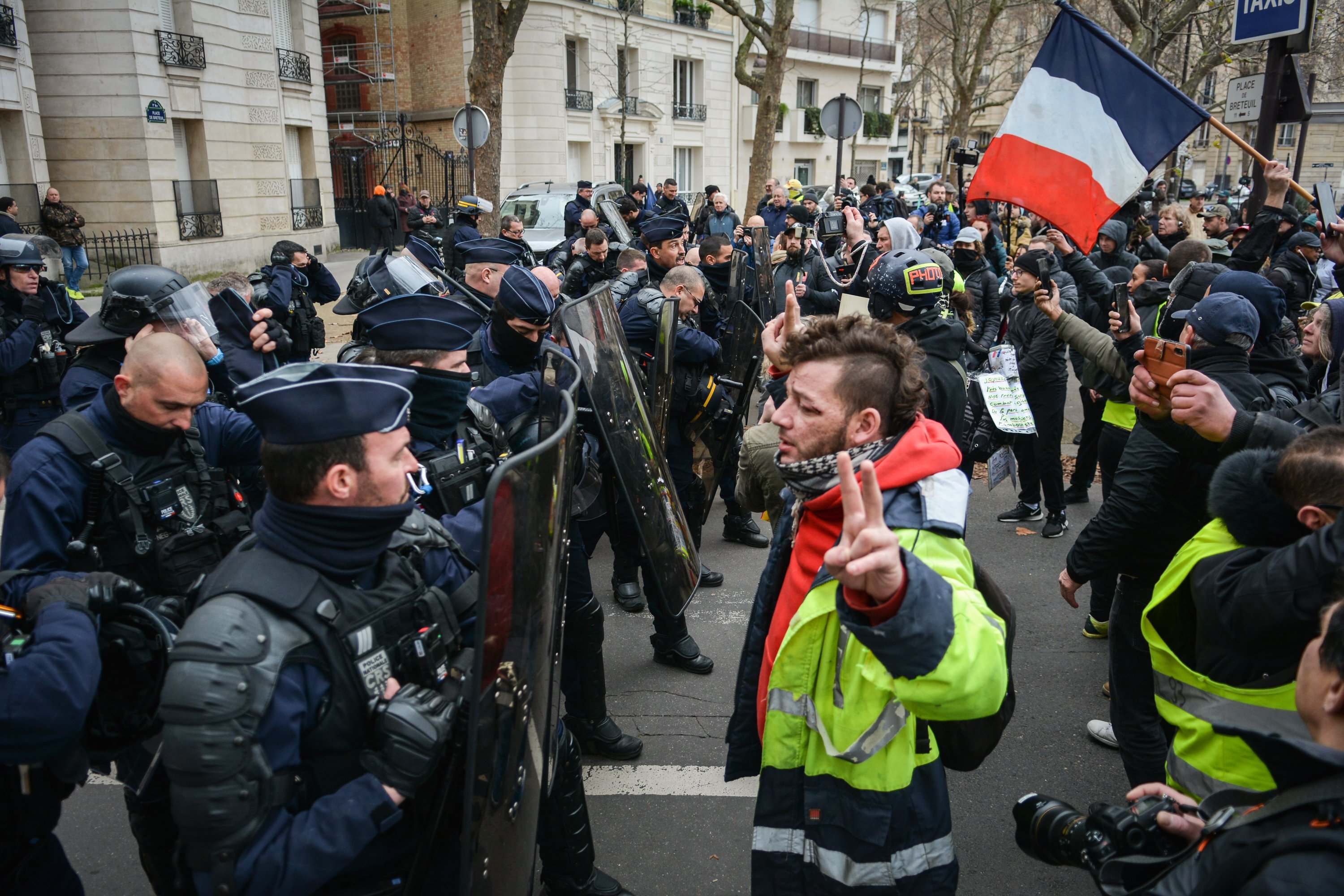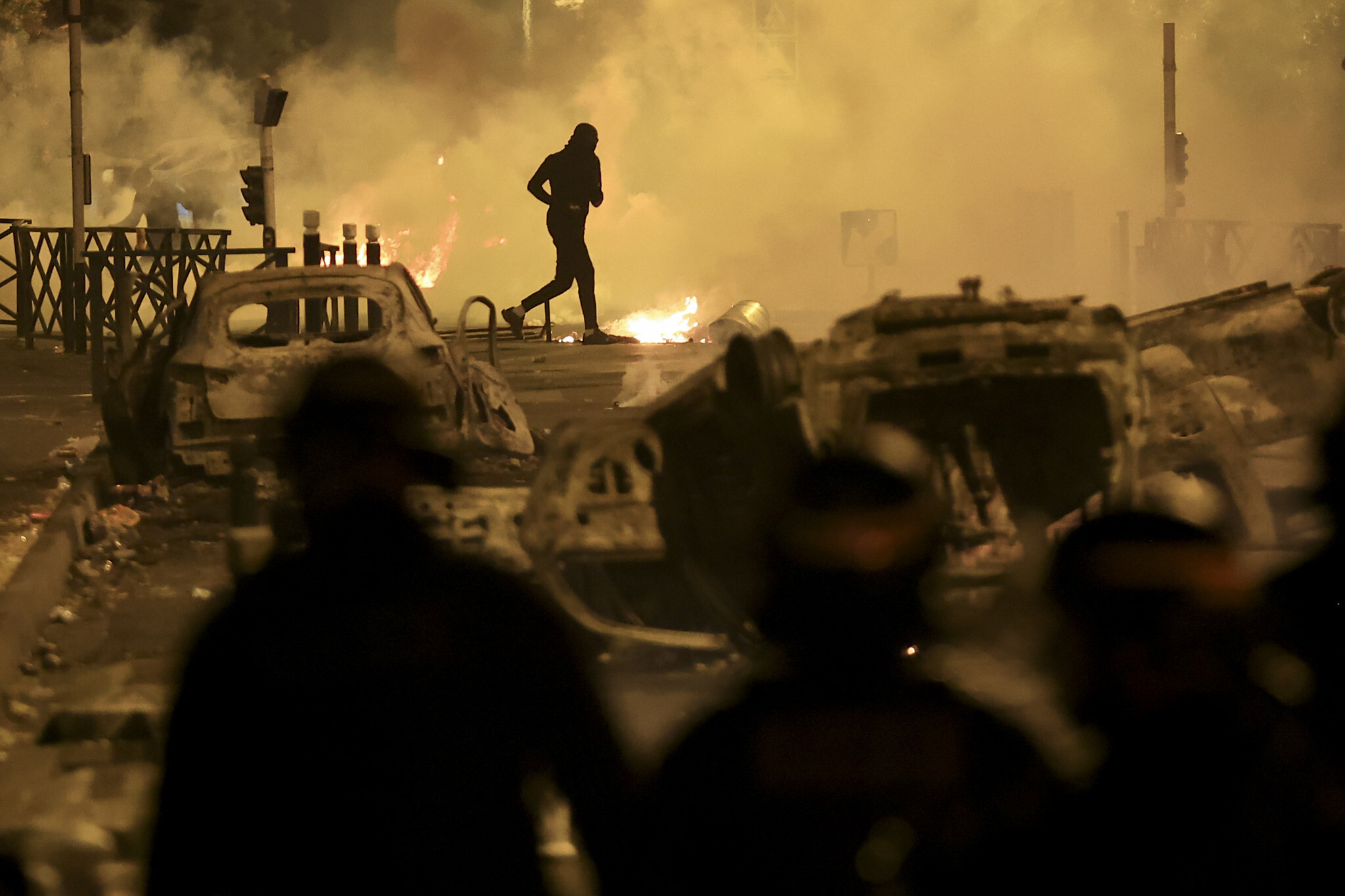Understanding the Root Causes of the Protests in France: Unveiling Socioeconomic Factors 2023

Understanding the Root Causes of the Protests in France: Unveiling Socioeconomic Factors 2023
Protests in France: According to reports, Nahel was driving a car when he was shot at close range on Tuesday morning at a traffic stop near Nelson Mandela Square.
Recently, France has witnessed a surge in violent protests that have spread beyond the boundaries of its romantic capital, Paris. What started as localized demonstrations in the City of Love has now evolved into a widespread expression of discontent and frustration throughout the country.

The causes behind this unrest are multifaceted, ranging from social inequality and economic struggles to political disillusionment.
Several violent occurrences, including rioting, demonstrations, and looting, have rocked France. Social media is flooded with videos of people rushing to the streets and burning cars, and the images are horrifying, to put it mildly. Police officers and protesters have engaged in violent altercations, and things only worsen daily.
According to several media sources, Emmanuel Macron, the president of France, responded to the protests with a crisis conference with ministers to assess the situation as he strives to unite the nation in his second term. What then caused the unrest? Was it police brutality or racism? We are here to provide you with the pertinent information.

It all began when a police officer shot and killed Nahel, a 17-year-old, in the suburbs of Paris. Tuesday morning, Nahel was driving a vehicle when he was shot at close range during a traffic stop close to Nelson Mandela Square. According to reports, Nahel was killed by a single shot to the left arm and chest. Police and paramedics revived him, but he was subsequently pronounced dead, according to Reuters. According to the report, an officer reportedly told investigators that he wanted to avoid another chase because he was worried that another person would get harmed.

One of the primary factors driving the protests in France is social inequality. Like many others, the country grapples with a growing wealth gap, where the rich become richer while a significant portion of the population faces economic hardships. The protests serve as a platform for the disenfranchised to voice their grievances against what they perceive as an unfair system favouring the elite. Many protesters argue that wealth disparities have widened, leading to exclusion and resentment among marginalized communities.

France’s economic challenges have also been crucial in fueling the unrest. High unemployment rates, particularly among the youth, create a sense of despair and hopelessness. The protests are, in part, a manifestation of the frustrations felt by those who struggle to find stable employment and face financial instability. Additionally, the rising cost of living, housing shortages, and cuts to social welfare programs have added to the grievances of many citizens, further exacerbating the economic strain felt by a significant portion of the population.
The prevailing sentiment of political disillusionment has contributed significantly to the unrest in France. Citizens feel disconnected from their political leaders, perceiving them as out of touch and unresponsive to their concerns. This disillusionment stems from various issues, including a perceived lack of transparency, a sense of corruption within the political class, and an inability to address societal problems effectively. The protests serve as a platform to voice discontent with the political establishment and demand tangible change.

The Yellow Vest movement, which gained momentum in late 2018, played a crucial role in shaping the ongoing protests in France. Initially triggered by rising fuel prices, the movement quickly evolved into a broader protest against social and economic inequality. The Yellow Vests, donning their distinctive high-visibility vests, called for measures to alleviate the burdens faced by the working and middle classes. While the movement has since waned, its impact has been long-lasting, serving as a source of inspiration for subsequent protests and contributing to the growing unrest in the country.
The COVID-19 pandemic has further exacerbated the existing grievances in French society. The health crisis brought widespread economic disruption, with businesses closing, job losses, and uncertainty. The government-imposed lockdowns and restrictions have further strained the economy and amplified the frustrations of the already marginalized groups. The pandemic has also exposed and exacerbated social inequalities, increasing anger and unrest among the population.
According to Interior Minister Gerald Darmanin, 270 individuals were detained on Friday, increasing the number of arrests since the protests began to more than 1,100. Benoit Payan, the mayor of Marseille, urged the federal government to send more troops right now.
The article further stated that to end the turmoil in Lyon, France’s third-largest city, and the police force sent out armoured personnel carriers and a helicopter.
The unrest in France, which has spread beyond the boundaries of Paris, is a result of deep-rooted social, economic, and political issues. Social inequality, financial struggles, political disillusionment, the influence of the Yellow Vest movement, and the COVID-19 pandemic have all contributed to the eruption of protests throughout the country. These protests reflect the frustrations of a significant portion of the population who feel marginalized and voiceless within the existing system. As France grapples with these challenges, it becomes crucial for the government to engage in meaningful dialogue and address the legitimate concerns of its citizens to foster a more inclusive and equitable society.




